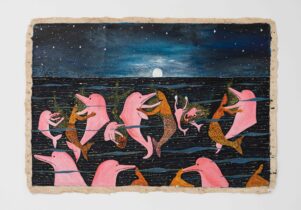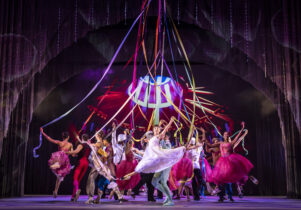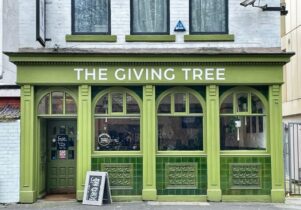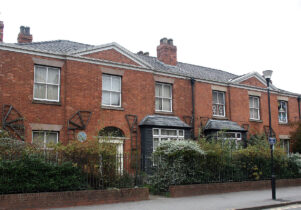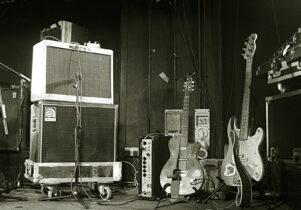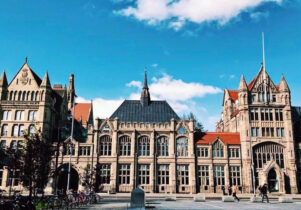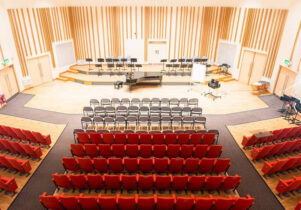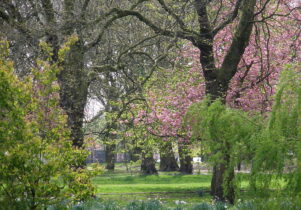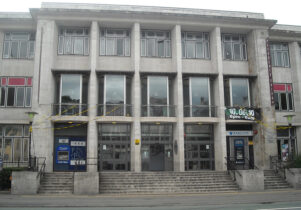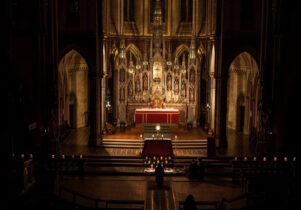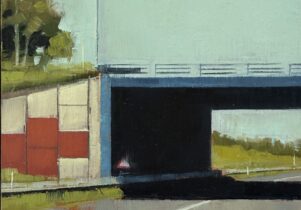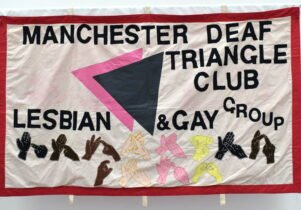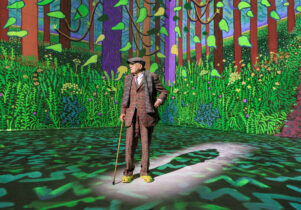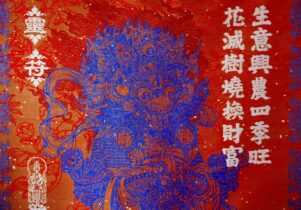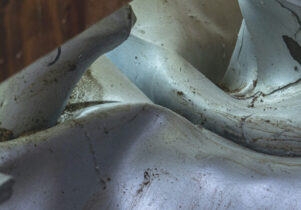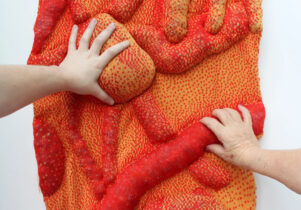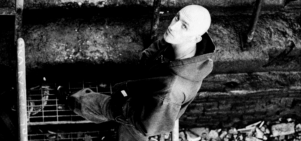Jakkai Siributr: There’s no Place at The Whitworth
Maja Lorkowska, Exhibitions EditorVisit now
Jakkai Siributr: There’s no Place
Always double check opening hours with the venue before making a special visit.
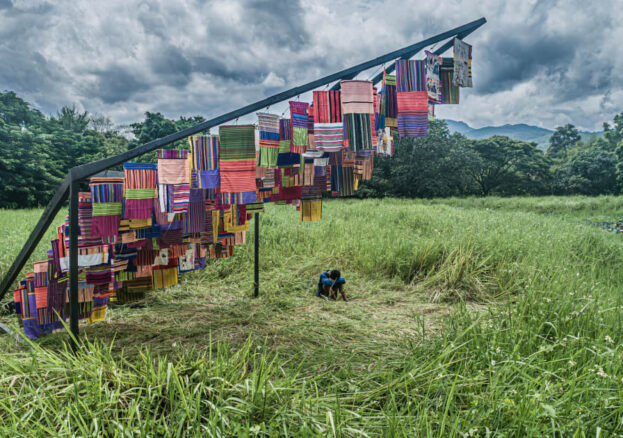
The Whitworth presents Jakkai Siributr: There’s no Place, a major exhibition by one of Southeast Asia’s leading artists. Siributr works primarily in textiles and is concerned with Thailand’s political, social and religious issues as well as his personal history and family stories. He seamlessly weaves these two strands of thinking together to create moving images, often realised in densely embroidered surfaces and quilts.
The exhibition is spread across two spaces: the more enclosed Project Space housing Siributr’s various series of works, and the performance space, where you’ll find embroideries from his ongoing project There’s no Place suspended above the audience seats. This collaborative piece explores ideas of home and belonging and was made with the community of Koung Jor Shan Refugee Camp and viewers around the world. The exhibition is accompanied by workshops where participants can offer their own embroidered contributions to the work.
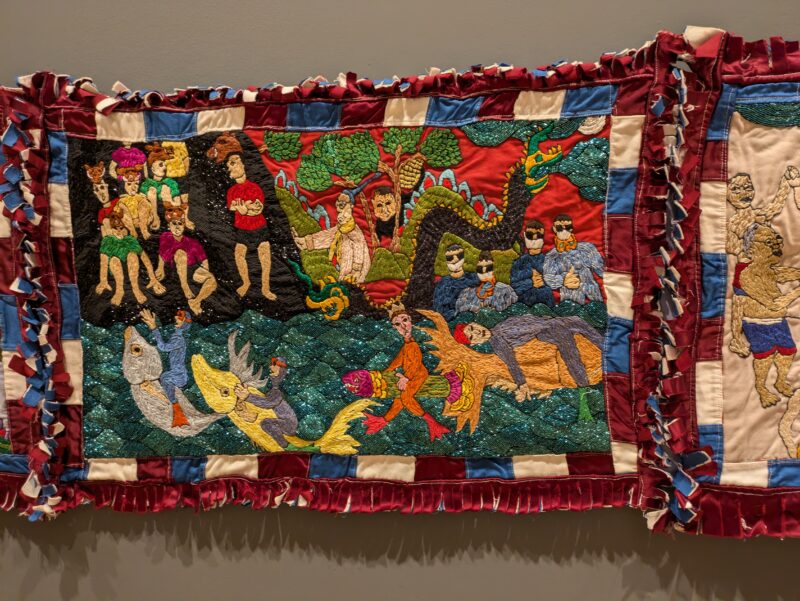
The Project Space is awash with vibrant colour and showcases Siributr’s skill and breadth of conceptual interests. Many of the artist’s works are inspired by and dedicated to the women in his family: in Broadlands Siributr honours his mother who passed away in 2016 by gathering and placing her clothes in the middle of the space, in an act of remembrance and grief.
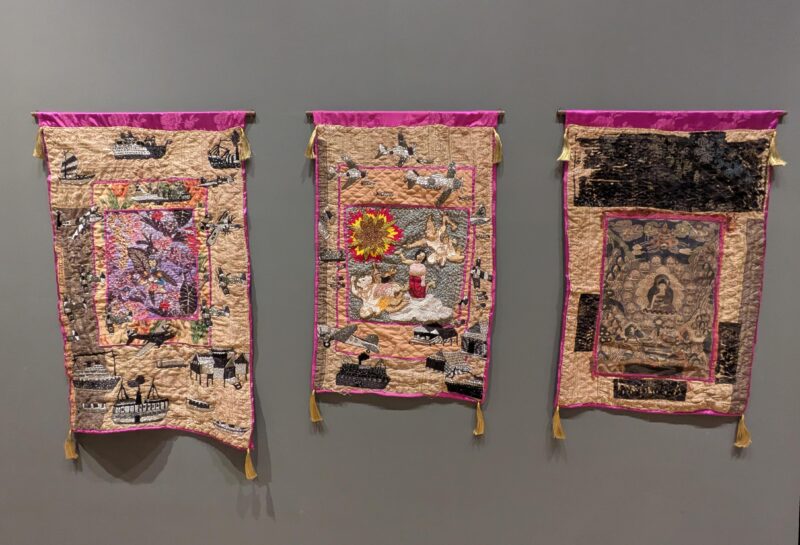
These feelings continue in the Matrilinial series of quilts, dedicated to the artist’s mother, aunts and grandmother. Each quilt features thick embroideries, with the chunky thread contributing to his recognisable style. They depict the women dearest to the artist alongside objects, buildings, ships, bombs and airplanes, the identifying features sometimes slightly distorted by the bulky stitch. These works demand careful attention and reward us with alluring imagery, realised in a myriad of hues and sparking beads.
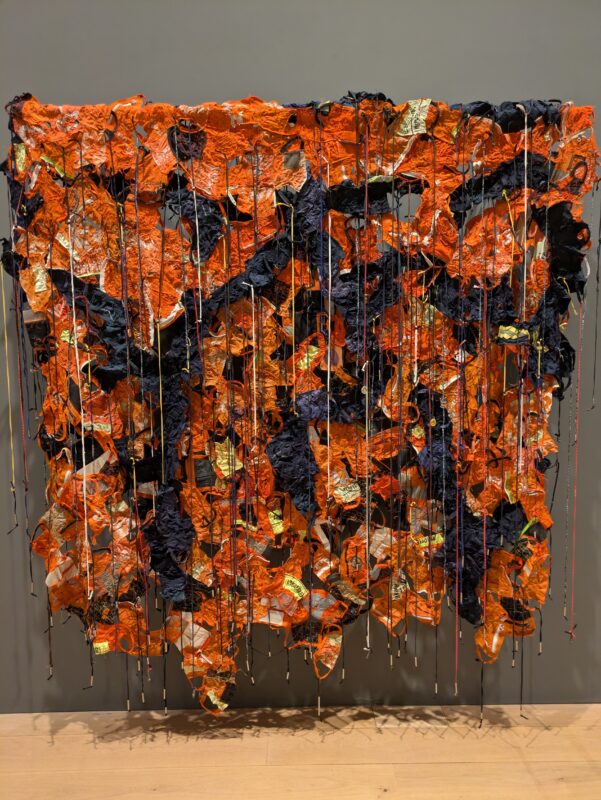
Siributr engages with larger political issues too, even in the most seemingly intimate works. For the three large-scale wall hangings, the artist utilised Thai service workers’ uniforms, embellished and transformed into entirely new objects. The pieces are a clear comment on the authorities’ handling of the COVID-19 pandemic and the financial effect on specific industries and therefore individuals. The uniforms used in these works were purchased directly from their owners.
Elsewhere in the room, Changing Rooms invites audiences to participate in the work by trying on items of clothing. There are camo jackets and Muslim-Malay skullcaps, or songkoks featuring embroideries depicting scenes of religious and ethnic conflict on Thailand’s southern border.
Jakkai Siributr: There’s no Place is a must-see exhibition that manages to combine weighty conceptual considerations with familial affection, through craft techniques and objects of unique beauty.


